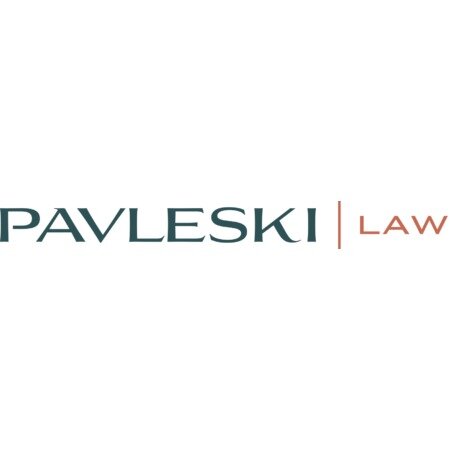Best Elder Law Lawyers in Serbia
Share your needs with us, get contacted by law firms.
Free. Takes 2 min.
Or refine your search by selecting a city:
List of the best lawyers in Serbia
About Elder Law in Serbia
Elder Law in Serbia is a specialized area of legal practice focusing on the issues affecting the elderly population. This area of law includes a wide range of legal topics, including estate planning, guardianship, healthcare decisions, social security benefits, and protection against elder abuse and exploitation. In Serbia, Elder Law aims to address the unique challenges faced by senior citizens, ensuring they receive adequate support and protection within the legal framework. As the population ages, Elder Law continues to evolve, addressing new challenges and advocating for the rights of older adults.
Why You May Need a Lawyer
There are several situations where individuals may seek legal help in Elder Law in Serbia. Common scenarios include:
- Estate Planning: Creating wills, trusts, and powers of attorney to ensure that an elder’s wishes are legally documented and respected.
- Guardianship: Establishing legal guardianships for those who are no longer able to make decisions for themselves.
- Healthcare Decisions: Obtaining legal advice on healthcare proxies or living wills to ensure medical preferences are honored.
- Pension and Social Security: Navigating the complexities of obtaining or disputing pension and social security entitlements.
- Housing and Long-term Care: Understanding the rights related to housing, nursing homes, and other long-term care arrangements.
- Protection Against Abuse: Taking legal action against elder abuse or financial exploitation to protect the well-being and rights of elderly individuals.
Local Laws Overview
Serbia’s legal system provides several protections and rights relevant to Elder Law, addressing issues such as:
- Healthcare and Patient Rights: Laws ensuring that older adults have access to necessary healthcare and the right to make informed medical decisions.
- Family and Guardianship Law: Regulations governing legal guardianship and the responsibilities of family members in the care of elderly relatives.
- Inheritance Law: Legal provisions concerning the distribution of an individual's estate upon death, taking into account obligatory heirs and the rights of spouses and descendants.
- Anti-discrimination Laws: Legislation prohibiting discrimination against the elderly in various sectors, including employment and healthcare services.
Frequently Asked Questions
What is Elder Law?
Elder Law is a legal specialty focusing on the needs and rights of older adults, dealing with issues such as estate planning, guardianship, health care, and protection from abuse.
At what age is someone considered a senior in Serbia?
In Serbia, individuals are generally considered seniors or older adults beginning at the age of 65, which is the typical age for retirement and social security benefits eligibility.
What rights do elderly individuals have regarding healthcare decisions?
Elderly individuals have the right to make informed decisions about their healthcare, including consenting or refusing treatment, and can appoint a healthcare proxy to make decisions on their behalf if they become unable to do so.
How can one challenge a guardianship decision?
Challenges to guardianship decisions can be made in court, requiring legal representation to present evidence and argue for the alteration or termination of the guardianship order.
What protections exist against elder abuse in Serbia?
The Serbian legal system provides mechanisms to report and address elder abuse, including financial exploitation, physical abuse, and neglect, and involves law enforcement and social services in protective actions.
How can an elder ensure their estate is distributed according to their wishes?
Creating a will or trust with the assistance of a lawyer is crucial to ensure an elder’s estate is distributed according to their wishes, minimizing disputes among heirs.
What are obligatory heirs, and how does that affect elder estate planning?
Obligatory heirs are individuals who are legally entitled to a portion of an estate under Serbian law, usually including children and spouses, affecting how an estate can be distributed.
Can an elder change their will, and how often can this be done?
An elder can change their will as often as desired, as long as they are of sound mind and follow the legal formalities required for executing a will.
What resources are available for seniors facing housing issues or requiring long-term care?
There are several governmental and private organizations that provide assistance and resources for seniors in need of housing solutions or long-term care arrangements.
How can one navigate the Serbian pension system effectively?
Consulting with a lawyer or a legal advisor specialized in social security laws can help individuals navigate the complexities of the Serbian pension system and resolve disputes.
Additional Resources
For those seeking further information or assistance related to Elder Law in Serbia, the following resources can be beneficial:
- Serbian Pension Fund (PIO): An essential resource for issues regarding pensions and social security benefits.
- Ministry of Health: Provides information on healthcare rights and services available to the elderly.
- National Association for Elderly Care: Offers support and advocacy for elder rights and well-being.
- Legal Aid Services: Available through local municipalities and the Serbian Bar Association for those who need legal representation but cannot afford it.
Next Steps
If you or a loved one requires legal assistance in Elder Law, consider the following steps:
- Consult with a Lawyer: Seek a lawyer specialized in Elder Law to discuss your specific needs and legal options. Look for those with experience and a good reputation in the field.
- Gather Documentation: Prepare all relevant documents and information related to your case, such as medical records, financial statements, wills, or trust papers.
- Research and Plan: Educate yourself on the specific legal issues you are facing, utilizing trusted resources and legal publications.
- Contact a Legal Aid Organization: For those unable to afford private legal services, consider reaching out to legal aid organizations to access free or reduced-cost advice.
Lawzana helps you find the best lawyers and law firms in Serbia through a curated and pre-screened list of qualified legal professionals. Our platform offers rankings and detailed profiles of attorneys and law firms, allowing you to compare based on practice areas, including Elder Law, experience, and client feedback.
Each profile includes a description of the firm's areas of practice, client reviews, team members and partners, year of establishment, spoken languages, office locations, contact information, social media presence, and any published articles or resources. Most firms on our platform speak English and are experienced in both local and international legal matters.
Get a quote from top-rated law firms in Serbia — quickly, securely, and without unnecessary hassle.
Disclaimer:
The information provided on this page is for general informational purposes only and does not constitute legal advice. While we strive to ensure the accuracy and relevance of the content, legal information may change over time, and interpretations of the law can vary. You should always consult with a qualified legal professional for advice specific to your situation.
We disclaim all liability for actions taken or not taken based on the content of this page. If you believe any information is incorrect or outdated, please contact us, and we will review and update it where appropriate.
Browse elder law law firms by city in Serbia
Refine your search by selecting a city.













